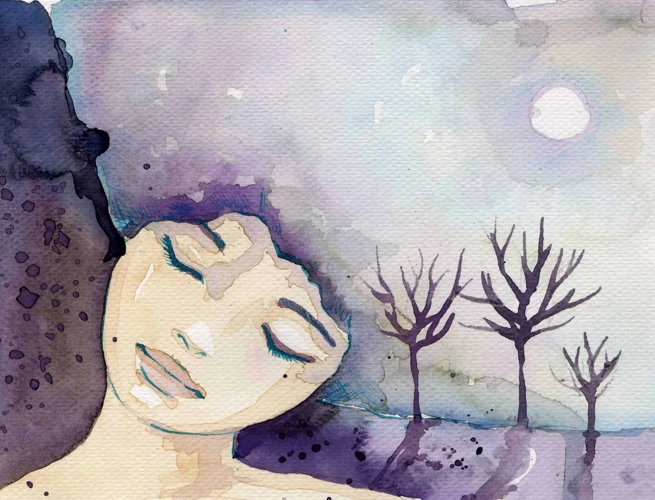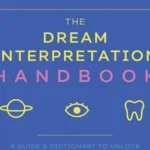Have you ever woken up from a dream feeling puzzled, wondering what it all meant? Dreams have long fascinated humans, and throughout history, countless theories and interpretations have emerged attempting to unravel their mysterious nature. This ultimate dream dictionary guide aims to provide you with a step-by-step exploration into the world of dreams and their meanings. From understanding different types of dreams to decoding common symbols and themes, we’ll delve into the fascinating realm of dreaming. Whether you’re curious about why we dream, seeking insights into your own subconscious mind, or simply intrigued by the enigmatic nature of dreams, this guide is here to help unlock the secrets of your slumbering mind. So, let’s embark on this journey into the realm of dreams and unravel their captivating mysteries.
What are Dreams?

Dreams are a fascinating phenomenon that occur during periods of sleep. They are a series of images, sensations, emotions, and ideas that unfold in our minds while we are slumbering. Although the purpose and meaning of dreams continue to be a subject of debate among scholars, psychologists, and spiritualists, they are often viewed as a way for our subconscious mind to communicate with us. Dreams can encompass a wide range of experiences, from mundane daily occurrences to bizarre and fantastical scenarios. Some theories suggest that dreams serve as a means of processing emotions, resolving conflicts, or even providing glimpses into the future. With such a vast and intricate landscape to explore, understanding dreams and their significance can be both captivating and insightful for individuals seeking self-discovery and personal growth.
Definition and Purpose
The definition of dreams can vary depending on different perspectives. From a scientific standpoint, dreams are a combination of neurological processes that occur during REM (rapid eye movement) sleep. During this stage, the brain becomes highly active, and vivid dreams are most commonly experienced. The purpose of dreams, however, remains a subject of speculation. Some theories suggest that dreams serve as a way for the brain to process and consolidate information gathered throughout the day, while others propose that dreams may offer insights into our unconscious desires, fears, and emotions. Regardless of their precise purpose, dreams continue to captivate and intrigue us, offering a window into the inner workings of our minds.
Different Types of Dreams
Dreams can take on various forms, each offering unique insights and experiences. Here are some of the different types of dreams:
- Lucid Dreams: In lucid dreams, individuals are aware that they are dreaming and can often exert some level of control over their dream experiences. It’s like being the director and actor in your own personal movie.
- Nightmares: Nightmares are vivid and distressing dreams that can evoke intense fear, anxiety, or sadness. They often involve threatening or unsettling scenarios.
- Recurring Dreams: These are dreams that repeat themselves over time. They may have similar themes, settings, or situations, and often carry deeper psychological meanings.
- Prophetic Dreams: Prophetic dreams are believed by some to offer glimpses of the future or to provide insights and warnings about upcoming events. While controversial, many individuals claim to have had such dreams.
- Sleep Paralysis: Sleep paralysis occurs when a person is temporarily unable to move or speak while transitioning between sleep and wakefulness. It can be accompanied by vivid hallucinations or the feeling of a presence in the room.
Understanding the different types of dreams can help you navigate and interpret the messages and emotions they convey. Whether you’re soaring through the skies in a lucid dream or grappling with a recurring nightmare, each type offers an opportunity to explore the depths of your subconscious mind.
Interpreting Dreams

Interpreting dreams is an endeavor that has intrigued individuals for centuries. While dreams can be highly personal and subjective, there are certain techniques and approaches that can help unravel their meanings. One common method is analyzing dream symbols, which are objects, people, or situations that appear in our dreams and hold significant meaning. The interpretation of symbols can vary depending on personal experiences, cultural influences, and even individual belief systems. Some symbols may have universal meanings, while others may be more personal and unique to the dreamer. It’s important to consider the emotions and context surrounding the symbols to gain a deeper understanding of their significance. Additionally, dreams can be interpreted symbolically, where the content of the dream is seen as a metaphor for something in the dreamer’s waking life. This approach allows for a more abstract and introspective analysis of dreams, providing insights into the dreamer’s subconscious thoughts, desires, fears, and unresolved issues. Dream interpretation is subjective and open to individual interpretation, so it’s essential to approach it with an open mind and use it as a tool for self-reflection and exploration.
Common Dream Symbols
Common Dream Symbols:
- Water: Water in dreams often represents emotions, symbolizing the depths of our subconscious mind. Depending on the context, water can signify tranquility, cleansing, or turbulent emotions.
- Money: Dreams about money can have various interpretations. They may reflect concerns about financial security, desires for abundance, or even indicate a need for self-worth. If you’re interested in exploring the biblical symbolism of money in dreams, you can read more here.
- Flight: Dreaming of flying can signify a sense of freedom, empowerment, or the desire to escape from a situation. It may also represent aspirations and ambitions, urging you to reach new heights.
- Death: Dreams involving death often symbolize transformation or the end of a phase in your life. It’s important to note that the meaning of death in dreams is subjective and can vary depending on the individual’s beliefs and experiences.
- Animals: Animals appearing in dreams can carry symbolic meanings. For example, a snake may represent transformation or healing, while a bird can signify freedom and spirituality. The interpretation of specific animal symbols may vary across different cultures and personal associations.
Symbolic Meanings
Symbolic meanings play a significant role in understanding the messages hidden within our dreams. Dreams often utilize symbols to convey deeper meanings and emotions that may be difficult to express directly. These symbols can vary based on personal experiences, cultural backgrounds, and individual perceptions. For example, dreaming of water might represent cleansing, purification, or a reflection of one’s emotional state. Similarly, dreaming of money could symbolize abundance, success, or economic concerns. It’s important to note that the interpretation of symbols can be highly subjective, and it’s essential to consider the context and personal associations of the symbol within the dream. By analyzing these symbolic meanings, we can gain valuable insights into our subconscious desires, fears, and aspirations.
Using a Dream Dictionary

A dream dictionary is a valuable tool for interpreting the symbolic meanings behind the elements in your dreams. These dictionaries contain a vast collection of symbols, objects, and scenarios commonly found in dreams, along with their potential interpretations. They work by providing insights and guidance on what the various symbols in your dreams may represent. For example, if you dream of money, a dream dictionary can help you explore the possible symbolic meanings associated with finances, abundance, or even hidden desires. It’s important to remember that dream interpretation is subjective, and the meanings suggested by a dream dictionary serve as general guidelines rather than strict rules. By using a dream dictionary, you can gain a deeper understanding of the messages and themes present in your dreams, helping you unlock the hidden symbolism they may hold.
How Dream Dictionaries Work
Dream dictionaries are valuable tools for interpreting and understanding the symbolism within our dreams. These dictionaries consist of a vast collection of common dream symbols and their associated meanings. When using a dream dictionary, individuals can look up specific symbols that appeared in their dreams and gain insights into what these symbols may represent in their waking life. Dream dictionaries typically provide descriptions, interpretations, and possible explanations for each symbol, allowing individuals to compare their dreams to the provided explanations and draw connections to their personal experiences. It is important to note that while dream dictionaries can be helpful, the interpretation of symbols may vary depending on the individual’s unique experiences and emotions associated with the symbol. It is essential to consider personal context and feelings when using a dream dictionary to unlock the hidden messages within our dreams.
Popular Dream Dictionary Symbols
When it comes to interpreting dreams, dream dictionaries can be valuable tools for deciphering the symbolic meanings behind various dream elements. These dictionaries contain a vast array of common symbols that frequently appear in dreams. Here are some popular dream dictionary symbols:
- Money: Money in dreams can represent abundance, success, or power. It may symbolize financial security or the pursuit of goals and desires. To explore the significance of money in dreams, you can refer to the dream of hiding money for hidden meanings.
- Water: Water often symbolizes emotions, intuition, and the unconscious mind. It can represent feelings of cleansing, renewal, or emotional depth. Dreams involving water may vary in meaning depending on the context and the individual’s emotions within the dream.
- Animals: Animals can symbolize various aspects of the self or represent qualities and characteristics we associate with them. For example, a lion may symbolize courage and leadership, while a snake might symbolize transformation or hidden fears.
- Death: Dreams about death may not necessarily indicate literal mortality. Instead, they often represent change, transformation, or the end of a phase in one’s life. The interpretation of death dreams can vary greatly depending on the dreamer’s personal experiences and beliefs.
Remember, these symbols are not set in stone, and their meanings may vary for each individual. Consulting a dream dictionary can provide a starting point for understanding the symbolism within your dreams, but personal interpretation and context are vital to unlocking the true significance of these symbols.
Common Dream Themes

Common dream themes encompass a wide array of experiences that many people can relate to. One prevalent theme is flying and falling dreams, where individuals find themselves soaring through the skies or plummeting uncontrollably. These dreams can symbolize a sense of freedom, liberation, or loss of control in waking life. Another common theme is nightmare and anxiety dreams, which often evoke intense negative emotions and feelings of fear, stress, or unease. Nightmares can stem from various sources, such as unresolved trauma, subconscious fears, or external stressors. Additionally, recurring dreams, another recurring theme, are dreams that occur repeatedly over an extended period. These dreams often carry important messages or signify unresolved issues that need attention. Exploring the meanings behind these common dream themes can offer valuable insights into our emotions, fears, and desires, allowing us to gain a deeper understanding of ourselves.
Flying and Falling Dreams
Flying and Falling Dreams are among the most common and intriguing types of dreams reported by individuals. When you have a flying dream, it often symbolizes a sense of freedom, liberation, or transcending limitations. It can indicate a desire to escape from a situation or explore new possibilities. On the other hand, falling dreams can evoke feelings of vulnerability, insecurity, or a loss of control. These dreams may be associated with anxiety or a fear of failure. While the specific meanings can vary based on personal experiences and emotions, flying and falling dreams generally reflect our aspirations, fears, and the ever-changing nature of life. Exploring the symbolism and emotions attached to these dreams can provide valuable insights into our inner desires and challenges that we may need to confront in our waking lives.
Nightmare and Anxiety Dreams
Nightmare and anxiety dreams are intense and often distressing dreams that can leave us feeling unsettled upon waking. They are characterized by feelings of fear, anxiety, and sometimes terror. These types of dreams can be vivid and realistic, making the emotions and sensations experienced within them feel incredibly real. Nightmares can be triggered by a variety of factors, such as stress, trauma, or even certain medications. They may also serve as a reflection of our subconscious fears and anxieties, providing an opportunity for us to confront and process these emotions. It’s important to remember that nightmares are a normal part of the dreaming process, and while they can be unpleasant, they often contain valuable symbols and messages that can guide us towards self-awareness and personal growth. If you frequently experience nightmares or are deeply affected by them, it may be beneficial to seek the guidance of a therapist or counselor to help explore and address the underlying causes of these dreams.
Recurring Dreams
Recurring dreams are a common occurrence for many people, causing a sense of familiarity and curiosity. These are dreams that occur repeatedly over time, often with similar themes, settings, or events. They can be vivid and memorable, making them stand out from other dreams. Recurring dreams can provide valuable insight into our subconscious mind and inner thoughts. These dreams may indicate unresolved issues or unresolved emotions that
Subscribe to Our Newsletter
Sign up to receive the latest news and updates.
Dreaming and Emotional Health

Dreaming and emotional health are closely intertwined. Our dreams can serve as a reflection of our internal emotional states and provide valuable insights into our well-being. Dreaming allows us to process and make sense of our emotions, helping us to release pent-up feelings and gain a deeper understanding of ourselves. Dreams can be a conduit for working through unresolved emotions, traumas, or conflicts that we may not consciously be aware of. They provide a safe space for exploration and expression, allowing us to confront and address our emotional struggles. By paying attention to the emotions experienced in our dreams, we can gain valuable information about our mental and emotional health. It is important to remember that dreams are highly personal experiences, and while they can provide valuable insights, professional help should be sought if any emotional distress persists or intensifies.
The Connection Between Dreams and Emotions
Dreams and emotions are intimately connected, as our dreams often reflect and express our deepest feelings. When we sleep, our subconscious mind takes center stage, allowing repressed emotions, fears, and desires to surface in the form of dreams. Dreams can amplify our emotions, whether it’s experiencing intense joy, fear, sadness, or anger within the dream world. They can also provide a safe space to explore and process complex emotions that may be difficult to confront in our waking lives. For example, a dream about losing a loved one might evoke feelings of grief and longing, while a dream about success and achievement can generate a sense of fulfillment and happiness. By analyzing the emotional content of our dreams, we can gain valuable insights into our unconscious thoughts and emotions, leading to a deeper understanding of ourselves and our emotional well-being.
Processing Emotions Through Dreams
Processing emotions through dreams is a common phenomenon that occurs during sleep. Dreams provide a platform for our subconscious mind to process and work through the various emotions we experience in our waking lives. When we dream, our minds are free from the constraints of reality, allowing buried emotions to surface. Dreams can act as a symbolic way of exploring and understanding our feelings, helping us navigate through complex emotions such as fear, sadness, anger, or even joy. For example, if you have been feeling overwhelmed by stress or anxiety, you might have dreams of being chased or falling. These dreams can be an indication that your subconscious mind is trying to process and alleviate the emotions associated with those experiences. By paying attention to the emotions invoked in our dreams, we can gain valuable insights into our emotional well-being and use them as a tool for self-reflection and personal growth. So the next time you wake up from a dream with intense emotions, take a moment to reflect on what they might be telling you about your inner world.
Tips for Remembering Dreams
If you find yourself struggling to remember your dreams upon waking, there are several techniques you can try to enhance your dream recall. One effective method is to establish a consistent sleep schedule and ensure you are getting enough sleep each night. Creating a calming bedtime routine can also help signal to your brain that it’s time to enter into a dream state. Keeping a dream journal by your bedside and making a habit of writing down your dreams as soon as you wake up can significantly improve your recall over time. Additionally, setting an intention before going to sleep to remember your dreams can help train your brain to be more attentive to your dream experiences. Another helpful tip is to gently focus your attention on your dreams upon awakening, allowing the memories to surface gradually. With practice and persistence, these techniques can greatly enhance your ability to remember and explore the rich inner world of your dreams.
Practices to Enhance Dream Recall
If you’re interested in diving deeper into the realm of dreams and unlocking the messages they hold, there are several practices you can employ to enhance dream recall. One effective method is to establish a consistent sleep schedule, as this promotes a more regular sleep cycle and can improve dream recall. Additionally, keeping a dream journal by your bedside allows you to jot down any recollections immediately upon awakening, before they fade from memory. Another technique is to set the intention to remember your dreams before going to sleep, often through affirmations or visualization exercises. Additionally, engaging in relaxation techniques such as meditation or deep breathing before bed can help calm the mind and enhance dream recollection. By implementing these practices, you can cultivate a greater awareness of your dream experiences and gain valuable insights into your subconscious mind.
Keeping a Dream Journal
Keeping a dream journal can be a valuable tool for anyone interested in exploring the depths of their dreams. By recording your dreams in a journal, you create a space for reflection and analysis. When you wake up from a dream, take a few moments to jot down the key details, emotions, and symbols that stood out to you. Over time, you may begin to notice patterns and themes that emerge from your dreams. Additionally, writing in a dream journal can improve your dream recall abilities, making it easier to remember and interpret your dreams. Whether you choose to keep a physical journal by your bedside or use a digital note-taking app, the act of documenting your dreams provides a valuable resource for self-reflection and understanding. So grab your pen or open a blank page on your device, and start capturing the fascinating world of your dreams in a dream journal.
Conclusion
As we reach the conclusion of this ultimate dream dictionary guide, we have embarked on a journey through the fascinating world of dreams. We have explored the definition and purpose of dreams, delved into different types of dreams, and deciphered common dream symbols. By understanding the various ways in which dreams can be interpreted, we have gained insights into our own subconscious minds and emotions. Additionally, we have learned about the connection between dreams and emotional health, and discovered techniques for remembering and analyzing our dreams. By unraveling the mysteries of our dreams, we can gain a deeper understanding of ourselves and the inner workings of our minds. So, the next time you wake up from a perplexing dream, remember to explore its symbolic meanings and embrace the messages that your subconscious is trying to convey.
Frequently Asked Questions
1. Do dreams have any real meaning?
Dreams have long been associated with symbolic meanings, personal insights, and subconscious messages. While some researchers argue that dreams are merely random brain activity, many believe that they can offer valuable insights into our emotions, fears, desires, and unresolved issues.
2. Can dreams predict the future?
While some people claim to have had prophetic dreams, the ability of dreams to predict the future remains a topic of debate. Dreams often reflect our thoughts, feelings, and experiences, but interpreting them as accurate predictions may be subjective and open to individual interpretation.
3. Why do we forget our dreams?
Forgetting dreams is a common occurrence due to the nature of memory consolidation during sleep. Dreams are usually experienced during the REM (rapid eye movement) stage of sleep, and as we transition into waking consciousness, the fleeting nature of dreams makes it challenging to remember them fully.
4. Can animals dream?
Research suggests that many animals, including mammals and birds, exhibit brainwave patterns consistent with REM sleep, which is associated with dreaming in humans. While we cannot fully understand their dream content, behavioral observations suggest that animals may also experience dream-like states.
5. Can dreams help solve problems?
Some studies have shown that dreaming can aid problem-solving and creativity. Dreams may help to consolidate information, provide new perspectives, and facilitate the formation of creative connections within the brain. Dream journaling and actively reflecting on dreams can also promote problem-solving abilities.
6. Are nightmares a sign of mental health issues?
While nightmares can be distressing, they are not always indicative of mental health issues. Nightmares can stem from stress, anxiety, trauma, or even certain medications. However, if nightmares frequently disrupt sleep or cause significant distress, it may be beneficial to speak with a healthcare professional.
7. Why do some dreams feel so vivid and realistic?
Vivid dreams often occur during REM sleep when brain activity is heightened, and the visual cortex is highly active. Additionally, emotions experienced during dreams can intensify the perception of realism. Factors such as stress, irregular sleep patterns, and certain medications can also contribute to vivid dreaming.
8. Can lucid dreaming be learned?
Yes, it is possible to learn and cultivate lucid dreaming, which is the ability to become aware that you are dreaming while still in the dream state. Techniques such as reality checks, keeping dream journals, and practicing visualization and meditation can increase the likelihood of experiencing lucid dreams.
9. Why do we sometimes have recurring dreams?
Recurring dreams often represent unresolved issues, fears, or unresolved emotions that our subconscious mind is trying to bring to our attention. They can be a way of highlighting patterns or unresolved conflicts, inviting us to explore and address them in our waking lives.
10. Can external factors influence our dreams?
Yes, external factors such as environmental stimuli, personal experiences, and emotional states can influence the content and tone of our dreams. For example, feeling anxious before bed or watching a thrilling movie can potentially influence the types of dreams we experience.










